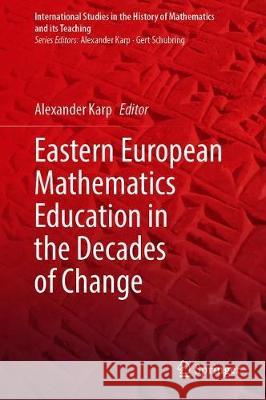Eastern European Mathematics Education in the Decades of Change » książka
topmenu
Eastern European Mathematics Education in the Decades of Change
ISBN-13: 9783030387433 / Angielski / Twarda / 2020 / 305 str.
Eastern European Mathematics Education in the Decades of Change
ISBN-13: 9783030387433 / Angielski / Twarda / 2020 / 305 str.
cena 402,53
(netto: 383,36 VAT: 5%)
Najniższa cena z 30 dni: 385,52
(netto: 383,36 VAT: 5%)
Najniższa cena z 30 dni: 385,52
Termin realizacji zamówienia:
ok. 22 dni roboczych.
ok. 22 dni roboczych.
Darmowa dostawa!
Kategorie:
Kategorie BISAC:
Wydawca:
Springer
Seria wydawnicza:
Język:
Angielski
ISBN-13:
9783030387433
Rok wydania:
2020
Wydanie:
2020
Numer serii:
000850187
Ilość stron:
305
Waga:
0.63 kg
Wymiary:
23.39 x 15.6 x 1.91
Oprawa:
Twarda
Wolumenów:
01











